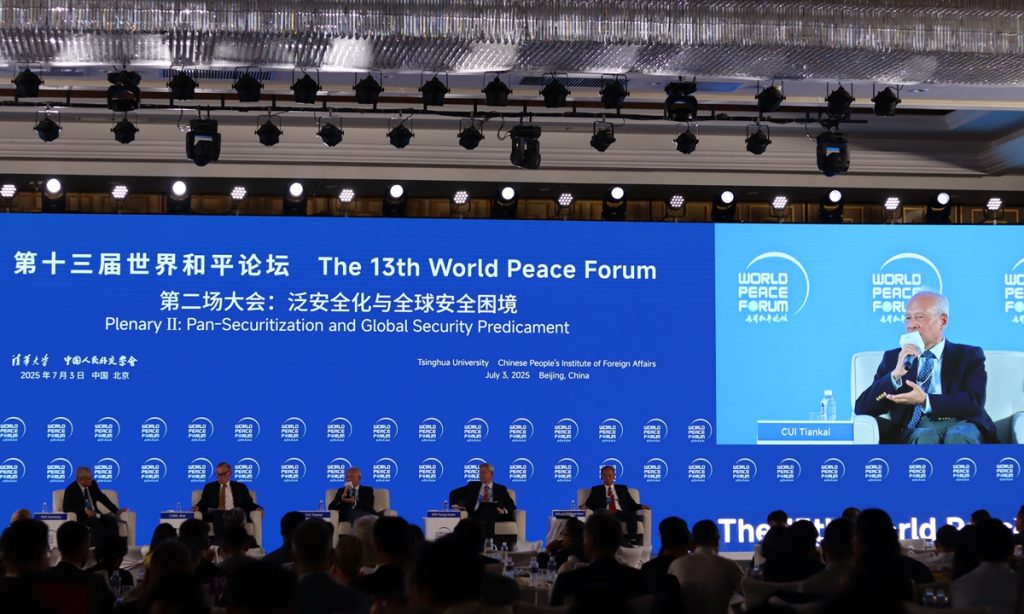WPF calls for peaceful dialogue, vigilance against rising security risks

Chinese officials, foreign diplomats and scholars called for joint efforts to uphold fairness and justice and to promote international security cooperation, at the 13th World Peace Forum on Thursday.
Launched in 2012, the World Peace Forum's core value is to provide forward-looking international security assessments and potential security cooperation recommendations.
The theme of this year's forum is "Advancing Global Peace and Prosperity: Shared Responsibility, Benefit, and Achievement." The discussions focus on strengthening international cooperation to maintain peace, foster development, and achieve common prosperity and lasting peace for all countries. This year's forum saw a record level of international participation, with 49 high-level foreign guests from 25 countries.
Chinese Vice President Han Zheng, in his address at the opening ceremony, put forward four proposals. First, learning from history and jointly safeguarding the post-war international order, as well as international fairness and justice. Second, adhering to solidarity and cooperation in order to improve global governance. Third, promoting openness and cooperation to drive global prosperity and development. Fourth, standing together in solidarity and jointly advancing toward modernization, according to the Xinhua News Agency.
Han also urged that development be placed at the center of the international agenda, with a committed focus on addressing the concerns of developing countries and solving the problem of inequality and imbalance in global development, Xinhua reported.
During a luncheon meeting, Liu Jianchao, head of the International Department of the Communist Party of China Central Committee, said when responding to a question related to commemorative events marking 80th anniversary of the victory in the Chinese People's War of Resistance Against Japanese Aggression and the World Anti-Fascist War, that 80-year is a major cycle in human development process. Today, however, traditional security threats have re-emerged, and conflicts and wars continue to occur. This occasion would allow the world's peoples to sit together and reflect on how to build an effective, long-term global security architecture to truly ensure peace.
In a plenary themed "Pan-Securitization and Global Security Predicament", Cui Tiankai, China's former ambassador to the US, pointed out that it is precisely under the mindset of generalized security that certain countries find themselves trapped in a "security dilemma." In other words, the predicament is not imposed on them by others; it is something they have created themselves, "they jumped into it."
Former European Council president Herman Van Rompuy noted in his speech at the first plenary that maintaining or rebuilding trust also depends on both bilateral and multilateral dialogue. "Even if there are differences of opinion - even profound ones - dialogue remains important. If political circumstances allow for closer ties to be reestablished, the process of dialogue will be easier, especially if it has never ceased to exist," he said.
Another frequently mentioned theme at the forum was "cooperation." When it comes to cooperation with China, experts showed a positive attitude.
In the first plenary, former Japanese prime minister Yukio Hatoyama said that for Japan to achieve economic transformation, it needs to cooperate more with companies from other countries. Japan should not shy away from working with China's advanced high-tech companies, simply out of fear of US sanctions.
"We, Europe, see China as a global partner, and we hope to cooperate even more with China on global issues - especially on climate change and efforts to promote peace in different regions," Stephan Grabherr, the Deputy Head of Mission of the German Embassy in China told the Global Times.